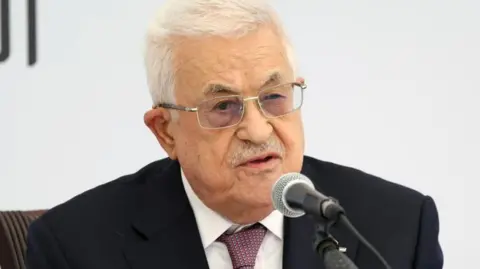The US says it will deny or revoke visas for Palestinian officials wishing to travel to New York next month to attend the UN General Assembly session.
Secretary of State Marco Rubio blamed them for undermining peace efforts and for seeking 'the unilateral recognition of a conjectural Palestinian state.'
The decision is unusual - the US, as host country, is expected to facilitate travel for officials of all countries wishing to visit the UN headquarters.
The ban comes as France spearheads international efforts to recognise a state of Palestine at the GA session. Donald Trump's administration has fully backed Israel in voicing opposition to such a move.
Israel's Prime Minister Benjamin Netanyahu has constantly rejected the idea of a two-state solution - the long-time international formula to resolve the decades-old Israel-Palestinian conflict. It envisages an independent Palestinian state being created alongside Israel in the West Bank and Gaza Strip with East Jerusalem as its capital.
Netanyahu says recognition of a Palestinian state would amount to rewarding 'Hamas's monstrous terrorism.'
More than 63,000 people have been killed in Gaza since an Israeli military campaign began in response to a Hamas-led attack on southern Israel on October 7, 2023, which resulted in considerable casualties and hostages.
Both Hamas and Fatah should be governed under the Palestinian Authority (PA), with President Mahmoud Abbas leading the PA and also the Palestine Liberation Organisation (PLO), which has had observer status at the UN since 1974.
In his announcement, Rubio stated: 'Before the PLO and PA can be considered partners for peace, they must consistently repudiate terrorism - including the October 7 massacre - and end incitement to terrorism in education, as required by U.S. law and as promised by the PLO.'
The move has raised questions about whether the US's decision complies with agreements regulating UN operations, which state that attendance should not be impeded by the host country.
While the state of Palestine is recognized by 147 of the UN's 193 member states, its lack of defined borders amidst ongoing Israeli settlements complicates the prospect of meaningful recognition.


















